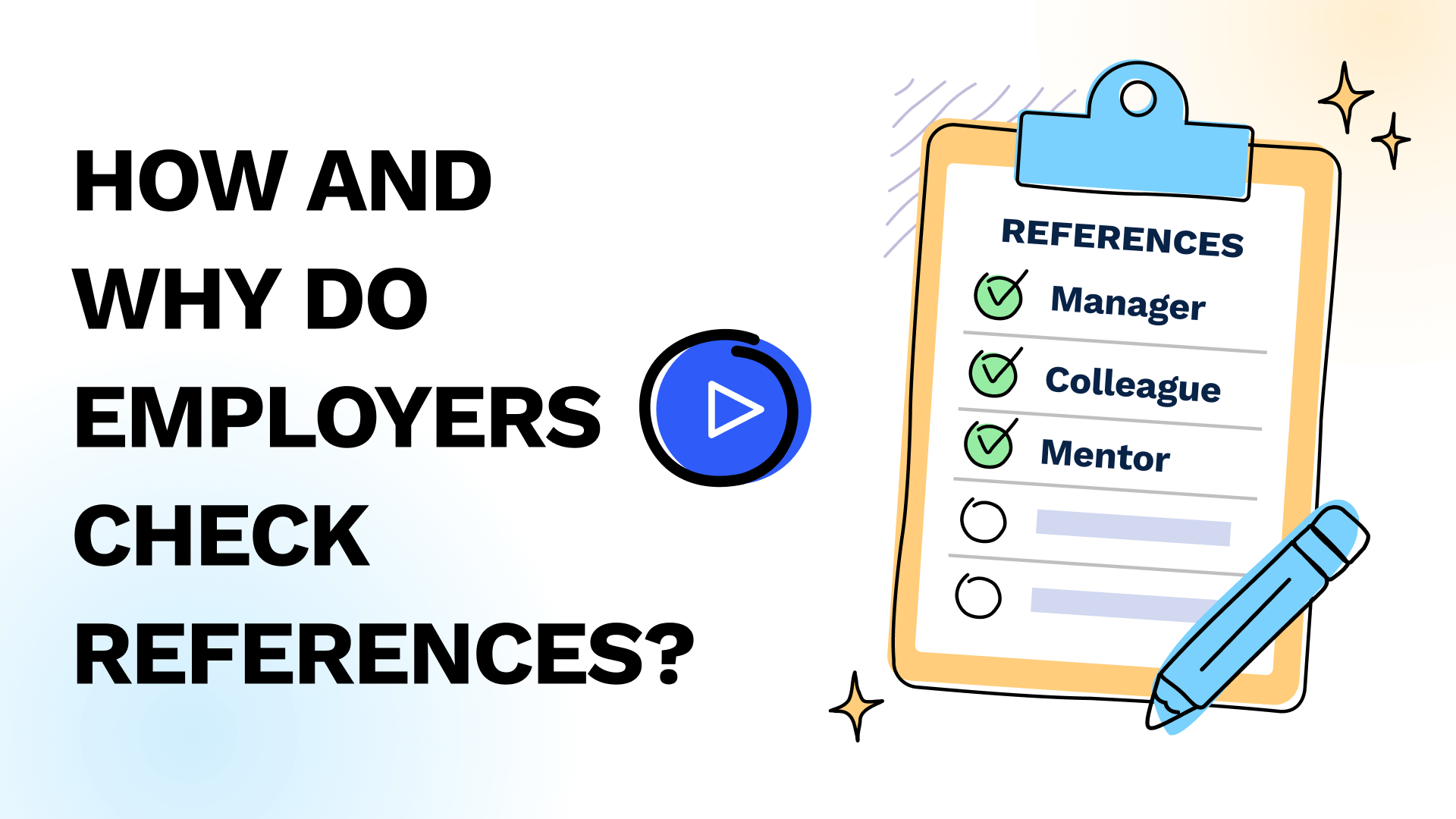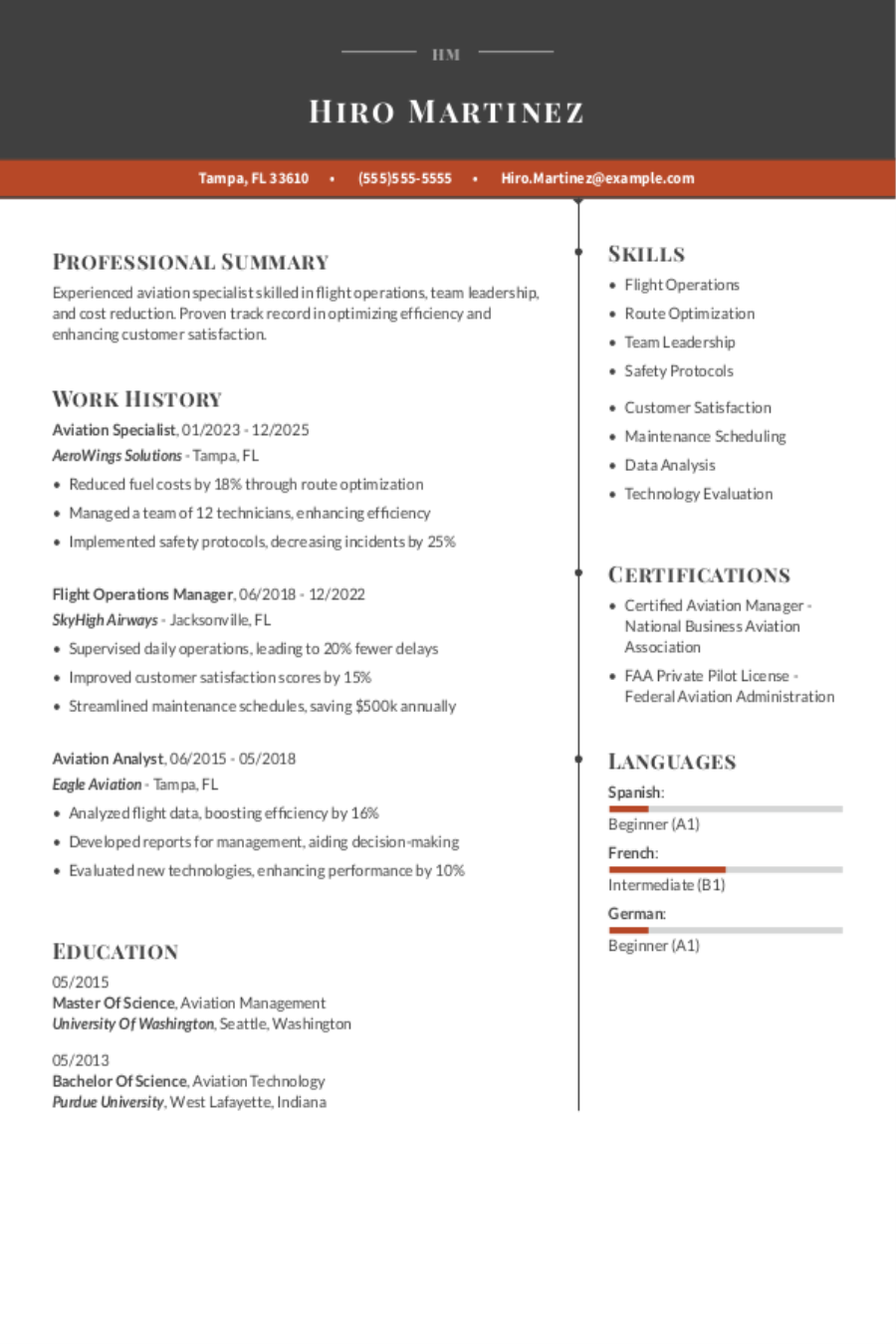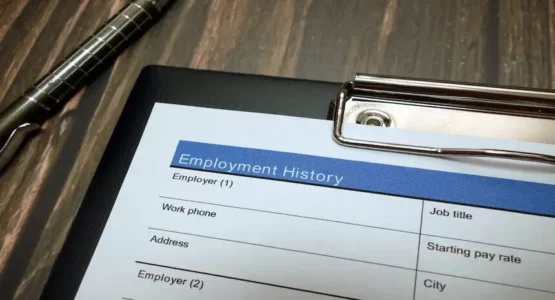The job search can feel like a marathon—from finding the right role, to perfecting your resume and cover letter, to answering interview questions. But even after receiving an offer, there's usually another request you have to fulfill: your references.
But do employers really check your references? And why do they ask for references after extending an offer? Our guide will answer these questions along with:
- Why employers care about references
- How you can format them on your resume (if needed)
- Whom to list as a professional reference
- How to ask someone to act as a professional reference
- The questions employers will ask them
Still working on your resume? Try our AI Resume Builder for help getting to the next step. This tool includes stylish, ATS-friendly templates and AI-assisted content suggestions to help you create a resume that impresses recruiters in just a few minutes.

Why Do Employers Check Your References?
If you find yourself asking, "Why do employers need my references?" you're not the only one. After completing the job search process, putting together a whole new document might seem like a hassle. But your references are important. Employers use your work history and references to:
- Verify your experience. Employers need to confirm you're telling the truth. To ensure that your skills are the real deal, they investigate your past roles and call the references you provide.
- Assess your work ethic and attitude. References can provide insight into your reliability, punctuality, teamwork, and how you handle challenges on the job. Your former colleagues can offer insight into your compatibility with the new work environment and the strength of your work values.
- Reduce hiring risk. By contacting references, employers lower the chances of making a bad hire that could cost time and money.
Honesty is nonnegotiable. These days, employers have access to background checks that allow them to verify your references. Honesty isn't just important for your integrity; it can make the difference between landing the role and getting rejected.
How to List Your References on a Resume
How you provide a potential employer with references differs for each job seeker. For most people, the question of how to put references on a resume is simple: don't do it.
Instead, create a list of references on a separate page. Generally, you shouldn't provide your references at all until the employer asks for them. At that time, you can share your list.
However, there are instances when an employer will explicitly ask applicants to add their references to the resume. In that case—and only in that case—you'll need to know how to format references on a resume.
In short, if you're asked to add references on your resume, add a section for them at the bottom of your document after your professional summary, work experience, and skills sections. Check out our resume examples for help visualizing what a complete resume looks like.
As for how to list your references on a resume, check out the example below:
References
John Smith
Former Manager, ABC Corporation
john.smith@email.com | (555) 555-5555
Linda Garcia
Senior Team Lead, XYZ Inc.
linda.garcia@email.com | (555) 555-5555
Michael Thompson
Project Supervisor, LMN Solutions
michael.thompson@email.com | (555) 555-5555
While you generally shouldn't list references on a resume, making a list of references that you're ready to share when the employer requests it will help you stay prepared.
Whom Should I List as a Professional Reference?
Employers check references to get a better sense of who you are as a person while verifying your stated skills and experience. So, identify whom you can enlist to paint a full picture of what you'll bring to the table if hired.
Typically, recruiters like to see at least three references for a role. If you have any kind of work experience, the best practice is to provide three professional references who can speak to your performance, soft skills, and hard skills. However, if you're a student or just entering the workforce, a relevant personal reference may be acceptable.
Here are some suggestions for choosing each type of reference:
How to choose professional resume references
For a professional reference, choose a person with whom you've had a positive professional working relationship. For this type of reference, you should choose:
- A former manager
- Someone whom you managed
- The person you reported to as an intern
- A former colleague who can speak to the specifics of your performance
- A mentor or someone you have mentored
If you're trying to list references without any work experience, it might seem challenging to find professional references, but don't discount the power of a personal reference. Even a candidate seeking their first job can count on an academic reference or a volunteer supervisor to vouch for their skills.
The best part? Even if you don't have any appropriate professional references, you can always earn some by taking a relevant class, participating in volunteer work, or getting involved with a favorite hobby.
How to choose personal resume references
A personal reference is someone you haven't worked with in a professional setting but who can speak to your character and soft skills. For this type of reference, choose:
- Someone you've worked with on a volunteer project
- A professor or teacher
- A coach
- Someone whom you've tutored or mentored
You may have seen sample resumes that include "References available upon request" at the end of the document. This is generally not necessary or strategic. If the employer requests references, include them. Otherwise, don't waste resume space.
How to Ask Someone to Act as a Reference
When an employer is considering extending you a job offer, they will typically ask for a list of references first. Providing that list is nonnegotiable for getting the job in the end. After you've identified who you'd like an employer to call on, you'll need to ask them if they'd be willing to act as a professional reference and vouch for your skills.
It's critical to ask them in advance if they're willing to be a reference. After all, you don't want them to be surprised by a phone call from a potential employer and not know what to say. Being taken off guard could impact the quality of the references you receive and, in some cases, make the person less likely to be a reference again. After all, giving a reference is a favor, and no one likes feeling unprepared.
Here are five tips for how to ask for a reference for a job:
- Make a phone call. Especially if the person you're asking for a reference is someone you don't speak to regularly, a phone call is a nice way to reconnect. Plus, it allows you to explain the role and what you're looking for them to highlight.
- Send an email. If you don't feel comfortable calling, send a polite email. Again, this gives you the chance to offer your reference details about the job and what you'd like them to touch on during the reference call. When writing an email, always include information about the timeline they should expect to be contacted within, if possible.
- Provide them with tools. After your reference agrees, email them the job ad, a list of items you think would be helpful for them to discuss, and a copy of your resume. Specify if there are specific projects or qualifications you think they would be able to speak to during the reference check.
- Send a thank you. Once the person is contacted, follow up as soon as possible to thank them for taking the time to offer their reference.
- Offer to reciprocate. The need for references goes both ways. In your thank-you note, it's nice to offer to provide a reference for them when the time comes.
Remember: Not only is it polite to contact each one of your references, but it also ensures that you have the right contact information for them. It's always possible their number may have changed. You also want to make sure they are willing to be your reference each time, even if they've done so in the past.
And if you sense any hesitation or are unsure if they'll give you a good reference, leave them off the list.
What Will the Employer Ask My References?
Wondering whether the employer will ask your references any prying questions? The answer is: generally no. Usually, a reference check includes broad questions about your work history and performance and may vary based on your local labor laws and the policies of the companies involved.
While you can't predict exactly what they'll ask, the following questions are typical for a reference check:
- What was your relationship to the candidate?
- How long did you work together?
- What were the candidate's daily responsibilities?
- How was their work ethic?
- Did they complete the tasks and assignments given to them?
- What are the candidate's strong points?
- What are their weaknesses?
- How did the candidate get along with their coworkers?
- Did they take direction well?
- What were the candidate's monthly or yearly goals?
- Did they meet their goals?
- How would you rate their work?
- Would you hire this candidate again?
- Why did they leave your company?
- Do you think the candidate has the skills to be successful in this position?
Still have questions about how employers might interact with your references? Check out our FAQ section, where we address some of the most common questions from job seekers.
Key Takeaways
List your references on a separate page.
Most job seekers should create a list of references on a separate page—don't attach them to your resume or include "Resumes available upon request" unless specifically asked to do so by the employer.
Be prepared to provide at least three professional references.
Typically, recruiters ask for at least three references. Ideally, your references should represent your recent professional experience.
Use personal references as needed.
If you have little to no work experience, personal references work too. Just ensure that they're able to report on your work ethic, skills, and relevant accomplishments.
Talk to your references in advance.
It's critical to ask your references in advance if they're willing to provide a reference.
Don't list references that you don't want the employer to contact.
Don't provide the contact information for your current company if you don't want them to know you're job hunting.
Read some common questions for professional references.
Study our list of commonly asked reference questions to understand how to prepare your references.
Be honest.
While an employer may not contact every one of your references, lying about parts of your background will set you up for failure.
FAQ
If you can't tell your current boss you're looking for a new job, interviewers usually understand. However, you must give them some solid references who can talk about what you're like to work with and how well you've done in previous jobs.
Never give a recruiter or hiring manager contact information for your current employer if you don't want them to be contacted. As long as you're able to provide solid professional references, this typically isn't an issue.
Just keep in mind that if you do use a supervisor or colleague from your current employer as a reference, they will catch on to your job search.
Most of the time, a potential employer will call some or all of your references before extending a job offer. In rare cases, an offer will be extended without checking references. However, you'll never know in advance, so it's critical that your references are solid and real.
Never make up a reference, lie about your past jobs, or inflate your professional successes. If a potential employer suspects you've been dishonest, it will ruin your chances of landing the job.
Of course not! When it comes to listing your references, you're in control. It's best to include recent references that are relevant to your current experience and skills. If you're concerned that a former boss or colleague can't provide a good reference, exclude them.
It's also common to leave off your current role if you don't want them to know about your job search until you're ready to submit your two weeks' notice.
The best professional references are colleagues, former employers, or mentors who have insight into your experience and skills. Professional references are great, but personal references like coaches, professors, or volunteer supervisors are excellent too.
Just be sure not to use family members, close friends, or people you don't know well. If someone can't provide professional insights into your achievements, then you shouldn't use them.
Was this information about Do Employers Check Work History helpful? Let us know!
Hailey is a career advice writer dedicated to helping job seekers excel in their careers.
More resources

What Is a CV? Curriculum Vitae Definition & Who Should Have One
Do you need to know what a CV stands for? We share the definit...

Hard Skills: 70+ Examples to Put on Your Resume
Hard skills are more important than ever in competitive indust...

AI Trends Heading Into 2026: Resume Now’s Year in Review
In 2025 artificial intelligence moved from buzzword to workpl...

Compliance Resume: Examples & Templates
As a compliance professional you need a resume that showcases...

Top Architecture Resume Examples & Pro Writing Tips
As an architect your resume must highlight essential skills l...

Aviation Resume: Examples & Templates
As an aviation professional you need a resume that showcases ...
